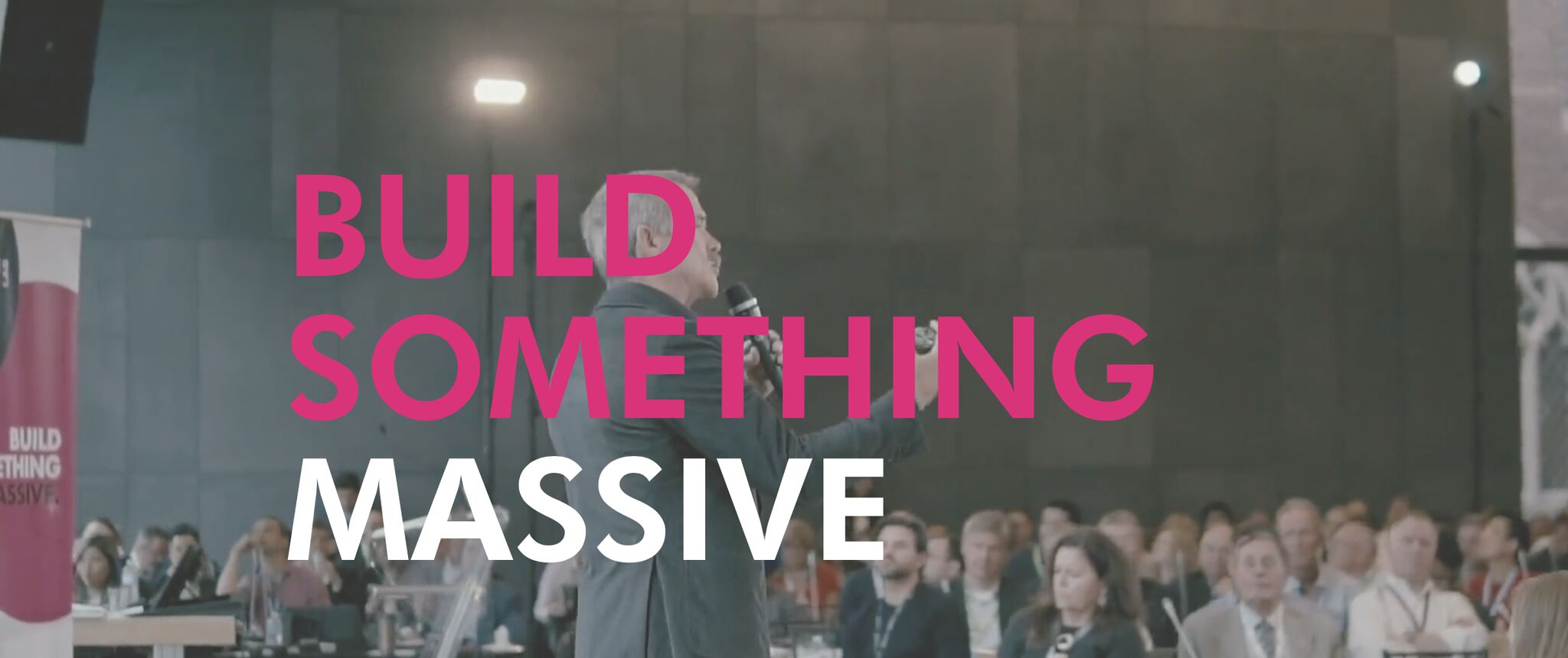The motto of the Creative Destruction Lab – “Build something massive” – captures, perhaps a little too neatly, the central affliction of contemporary entrepreneurship: the conflation of magnitude with merit. “Massive” has become shorthand for ambition, but without qualifying what that mass is composed of- or directed toward – it becomes meaningless at best, and harmful at worst.
Scalability in itself is not a virtue. It’s a vector. What matters is what you scale.
Silicon Valley didn’t begin this way. The early days of Silicon Valley- when Hewlett-Packard was building precision oscillators and Intel was advancing the semiconductor – were not about lifestyle optimization or frictionless consumption. They were about expanding the frontiers of technology. They were, in the true sense of the word, transformative.
Today, to “build something massive” often means “create a minimally useful digital product and deploy it globally before anyone notices the ethical implications.” The result has been a twenty-year arc of increasingly derivative ventures, with a brief interlude of Utopian rhetoric. In the early 2000s, startups routinely declared their intent to “change the world.” Elizabeth Holmes channelled Gandhi via Steve Jobs: “First they think you’re crazy, then they fight you, then you change the world.” And they did change it – though not always for the better.
When Silicon Valley was at its most self-congratulatory, “changing the world” could mean something as trite as “changing how privileged urbanites order lunch.” At its more troubling moments, it genuinely did change the world – through platforms like Facebook – in ways that reshaped politics, culture, and the structure of public discourse.
Indeed, the net effect of building two of the most massive enterprises of the past two decades – Facebook and the “Uber for X” model- has been mixed, at the absolute best. Facebook has, ironically, been a powerful tool for strengthening local communities and reuniting long-lost acquaintances. But scaled without limits, it has become a platform for misinformation, polarization, and in places like Myanmar, instigators of actual violence and war.
Uber, similarly, represents a marked improvement over legacy taxi systems in terms of convenience, access, and price. But the model it inspired has had a devastating effect on the dignity of labour. The “Uber for X” playbook has extracted the worst elements of precarious employment and repackaged them with cheerful UX. The gamification app offered to the driver is infantilizing. The algorithm never sleeps, never bargains, never empathizes. There is no water-cooler, no colleagues, no promotions, no rituals- just metrics, ratings, and relentless hustle.
Office Space, once a satire of stifling, white-collar mediocrity, now plays almost like nostalgia cinema. Innitech’s employees had humiliating moments, but they also had weekends, healthcare, and the psychological space to complain, or even organize. The gig worker has no such luxuries.
To truly increase human thriving, we must aim higher than scale. The most urgent problems of our time are not engineering problems in search of a pitch deck. They are complex, moral, and systemic. Consider:
- A clean energy solution that will enable masses of people to enjoy the better standard of living that comes with high energy consumption
- If we no longer believe that we can halt climate change, we must be prepared with solutions to help us adapt to it.
- Mental health infrastructure
- Equity in access, mobility, and opportunity
These are hard problems. You won’t solve them with “Uber for X.” But they are worthy aims. They are massive in the right sense: in scope, in importance, in moral weight.
To “build something massive” without a moral compass is how you get a world of meta-addictive algorithms, billionaires in bunkers, and kids glued to screens. It’s not just uninspired. It’s dangerous.
Ambition is not the problem. Direction is. There’s nothing wrong with wanting to build boldly and at scale. But we must ask: scale of what? To what end?
Instead of “Build something massive,” perhaps we should consider:
- “Build something useful”
- “Build something profitable”
- “Build something that matters”
Or at the very least: build something beautiful. These alternatives may lack the macho grandeur of massiveness, but they are rooted in a sense of purpose. Do we want to help people thrive, or merely exploit them? The power to scale is real. But without intention, without reflection, it merely magnifies the trivial- or worse, the harmful.
Let’s build better things. And let’s be careful what we wish for.
